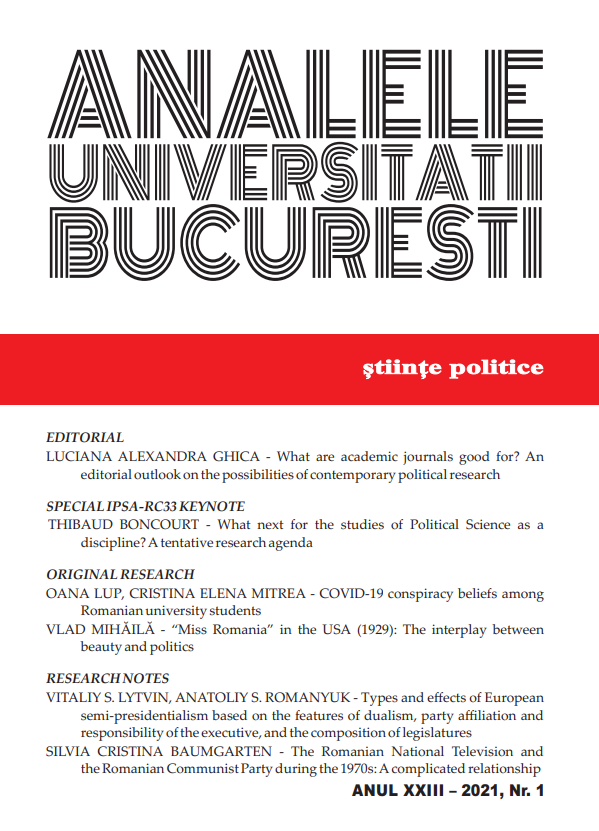COVID-19 conspiracy beliefs among Romanian university students
COVID-19 conspiracy beliefs among Romanian university students
Author(s): Oana Lavinia Lup, Elena Cristina MitreaSubject(s): Politics, Higher Education , Health and medicine and law, Post-Communist Transformation, Social Norms / Social Control
Published by: Editura Universităţii din Bucureşti
Keywords: conspiracy beliefs; COVID-19; Romania, Central and Eastern Europe; postcommunism; university students; news consumption; analytical skills; scientific literacy;
Summary/Abstract: This article explores factors that affect the strength of beliefs in COVID-19 conspiracy theories drawing on data collected in an online survey of undergraduate and graduate students from Romanian universities. The results indicate that students with lower socio-economic status, lower levels of news consumption in the wake of the COVID-19 crisis, who rely primarily on information from television and discussions to their peers, as well as those with lower levels of education/analytical skills are more susceptible to endorsing conspiracy theories regarding the origin and the nature of COVID-19. Education, analytical skills, and exposure to high quality media information appear to equip students with the necessary tools to critically assess COVID-19-related conspiracies. Given the link between conspiracy belief and health behaviors in the context of the pandemic, these results point to the importance of analytical skills and media regulation for curbing misinformation in societal contexts of heightened uncertainty, confusion, and existential threat.
Journal: Analele Universităţii din Bucureşti. Seria Ştiinţe Politice
- Issue Year: XXII/2021
- Issue No: 1
- Page Range: 29-57
- Page Count: 30
- Language: English

